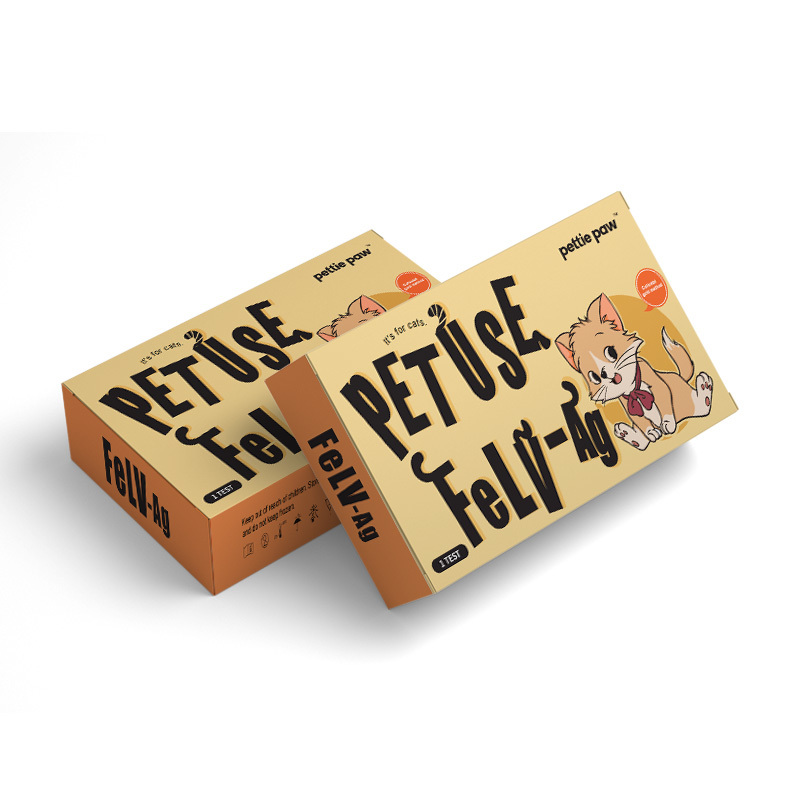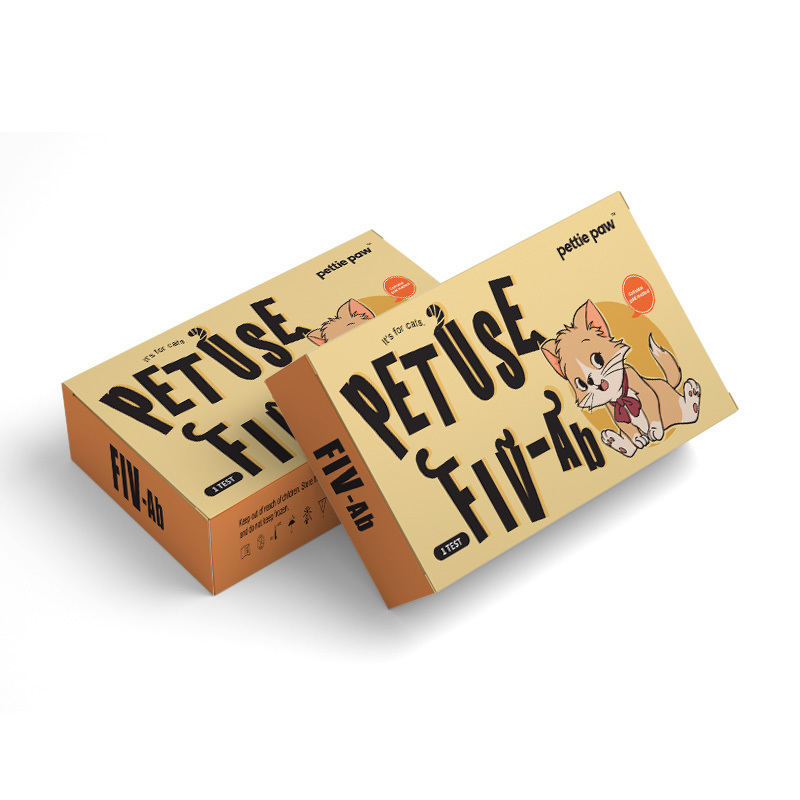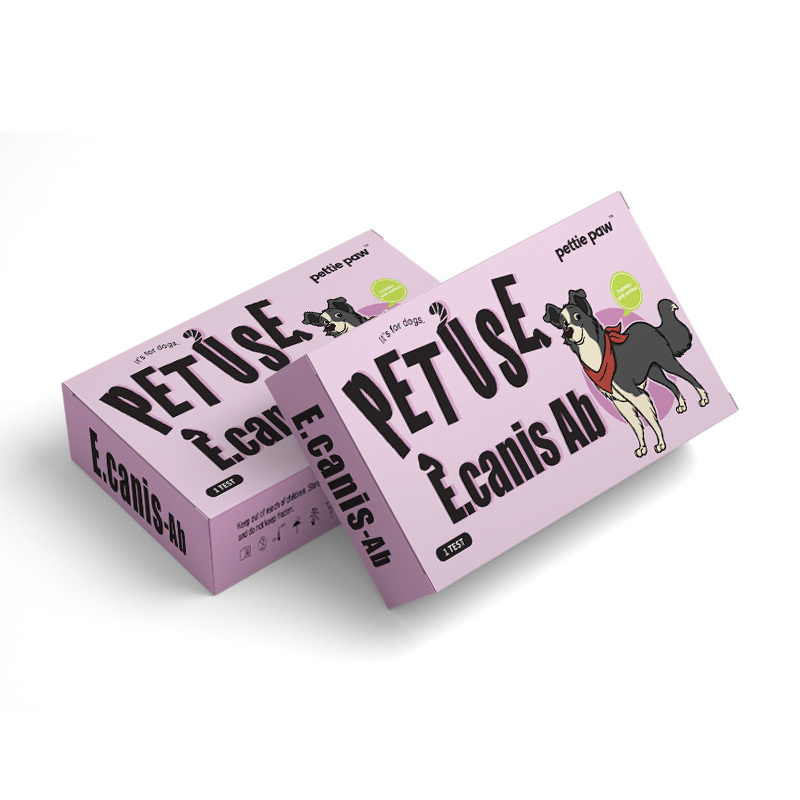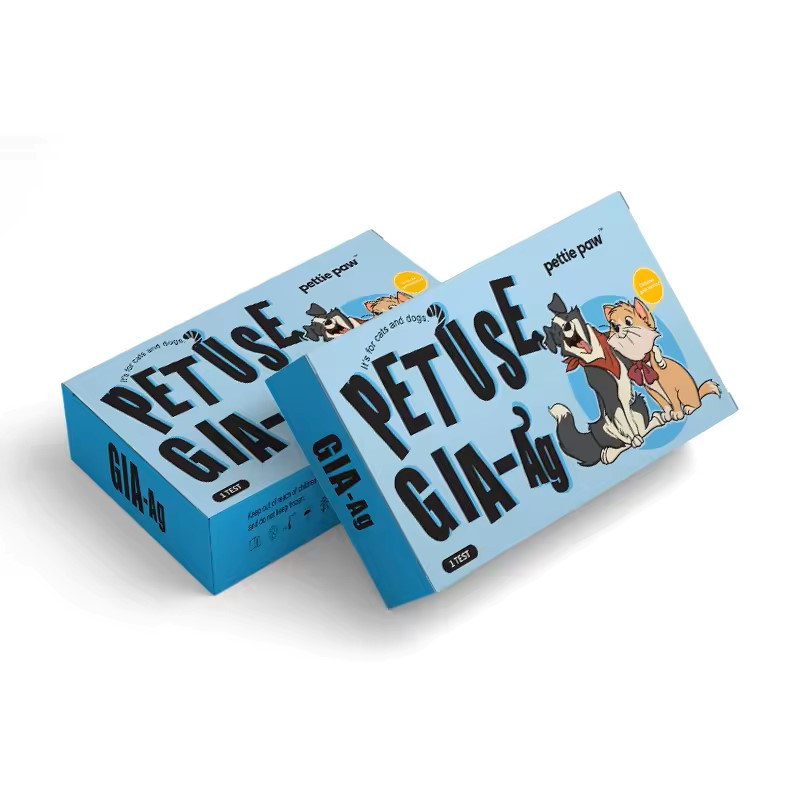Over 15,600 Cases! WHO Declares Monkeypox a "Public Health Emergency of International Concern" Again
Release time:
2024-08-19
News: On the 14th, WHO Director-General Tedros Adhanom Ghebreyesus announced that the monkeypox outbreak constitutes a "Public Health Emergency of International Concern" (PHEIC).
This is the second time in over two years that the WHO has declared the monkeypox outbreak as a PHEIC.
According to WHO data, more than 15,600 cases of monkeypox have been reported so far this year, exceeding the total number of cases reported last year, with 537 deaths.

Monkeypox Outbreak Rages in Africa:
On August 13, the Africa Centres for Disease Control and Prevention (Africa CDC) declared the monkeypox outbreak a public health emergency in Africa and urged all African countries to take urgent action to prevent the continued spread of the virus across the continent.
According to data from the Africa CDC on August 8, at least 16 African countries have been affected by the monkeypox outbreak. Compared to the same period in 2023, the number of reported monkeypox cases in Africa this year has increased by 160%.
New Virus Variant Spreads to Europe!
On August 15, local time, WHO officials confirmed for the first time that Sweden reported a case of infection with a new monkeypox virus variant, Ib, which was originally discovered in Africa. This is the first instance of the virus spreading outside the African continent. Experts suggest that the discovery of this case likely indicates that there are dozens of undetected cases in Europe.
At a press conference on the same day, Swedish health officials stated that the patient contracted this new variant of the monkeypox virus during the current outbreak in Africa and is currently receiving treatment.
Monkeypox
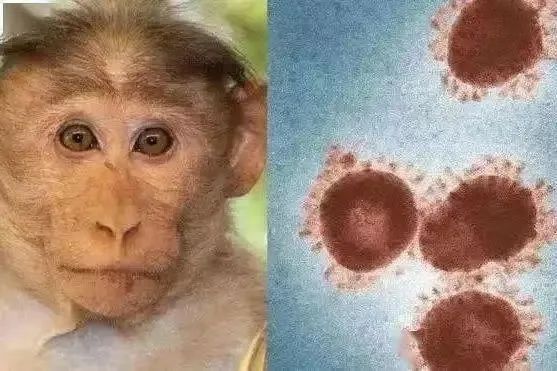
Monkeypox is a rare and sporadic acute infectious disease caused by the monkeypox virus (MPXV), with clinical manifestations similar to smallpox. The incubation period for monkeypox is 5 to 21 days, most commonly 6 to 13 days. The main clinical symptoms include fever, rash, and lymphadenopathy. Some patients may develop complications, such as secondary bacterial infections at the site of skin lesions, encephalitis, and more. Most people recover completely, but some may develop severe illness. Additionally, monkeypox is preventable.
Sources of Infection and Transmission of Monkeypox:
The primary sources of infection for monkeypox are African rodents, primates (such as various species of monkeys and apes), and humans that are infected with the monkeypox virus. Humans can become infected through contact with respiratory secretions, lesion exudates, blood, or other bodily fluids from infected animals, or through bites or scratches from infected animals. Human-to-human transmission primarily occurs through close contact, but it can also be spread through respiratory droplets during prolonged close contact. Additionally, the virus can be transmitted from a pregnant woman to her fetus via the placenta.
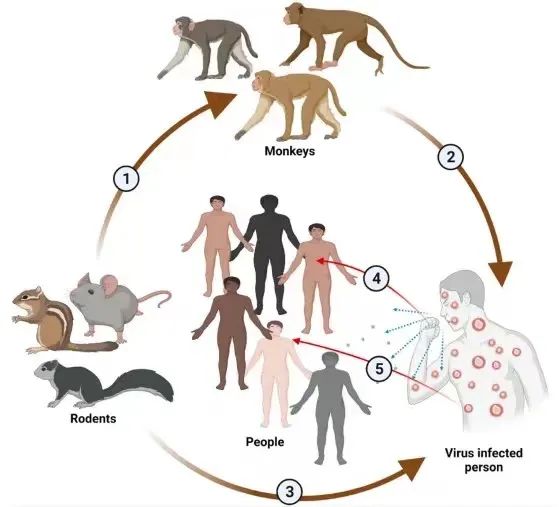
Incubation Period and Clinical Manifestations of Monkeypox:
The incubation period for monkeypox is typically 6 to 13 days, with a maximum of up to 21 days. Infected individuals may experience symptoms such as fever, headache, and lymphadenopathy. This is followed by the appearance of a rash on the face and other parts of the body, which gradually develops into pustules that persist for about a week. The pustules eventually form scabs, and once all the scabs have fallen off, the infected person is no longer contagious.
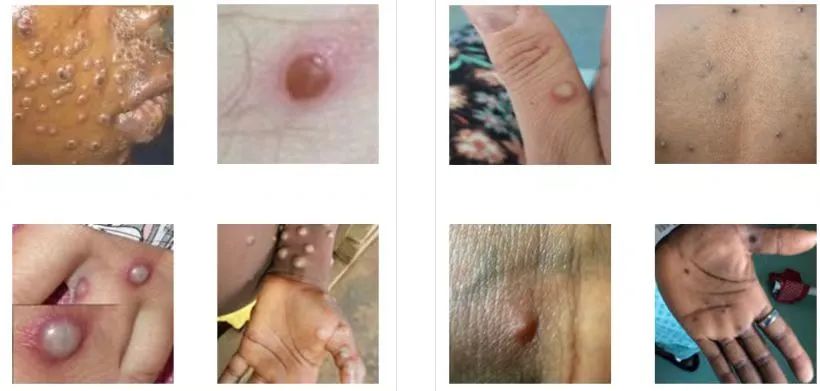
Treatment of Monkeypox:
Monkeypox is a self-limiting disease, and most cases have a good prognosis. Currently, there are no specific antiviral drugs for monkeypox available domestically. Treatment primarily involves symptomatic and supportive care, as well as managing complications. In most cases, the symptoms of monkeypox resolve on their own within 2 to 4 weeks.
Prevention of Monkeypox:
- Avoid close contact with individuals infected with monkeypox. Sexual contact, especially between men who have sex with men, carries a higher risk.
- Avoid direct contact with wild animals in countries with high incidence rates. Refrain from hunting, slaughtering, or consuming local animals.
Maintain good hygiene practices. Regularly clean and disinfect, and practice proper hand hygiene.
Health Monitoring:
If you have had contact with suspected animals, individuals, or monkeypox cases either domestically or abroad, and develop symptoms such as fever or rash, you should promptly seek medical attention at a reputable hospital, typically choosing the dermatology department. Inform the doctor of your epidemiological history, and avoid close contact with others until the scabs have fallen off.
SYNTHGENE's Monkeypox Virus Testing Solutions
SYNTHGENE Pharmaceutical has developed three products: the "Monkeypox Virus Nucleic Acid Test Kit (RT-PCR method)," the Monkeypox Virus Antigen Test Kit (colloidal gold method), and the Monkeypox Virus Antibody Test Kit (colloidal gold method). All three products have obtained the EU CE certification and are registered with the UK's MHRA.
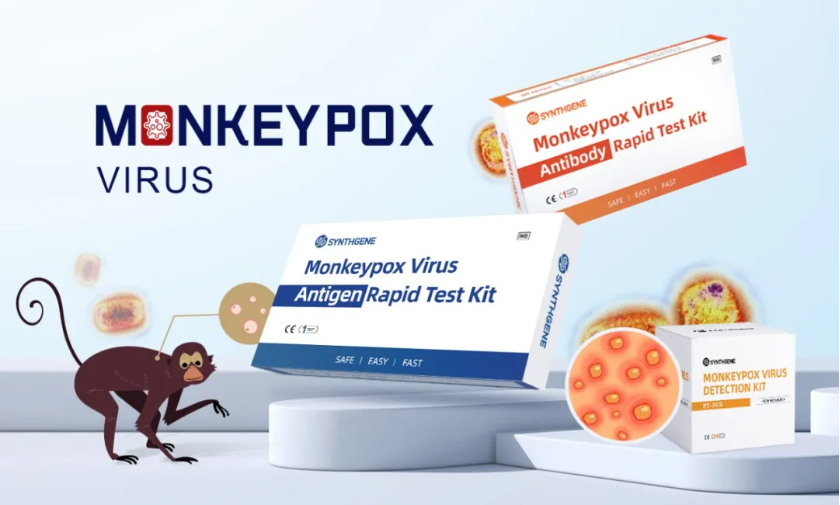
During the monkeypox outbreak in Europe, these products gained widespread recognition from medical institutions and research organizations, demonstrating the excellent performance and user experience of Shenji Pharmaceutical's monkeypox virus testing kits from multiple perspectives.
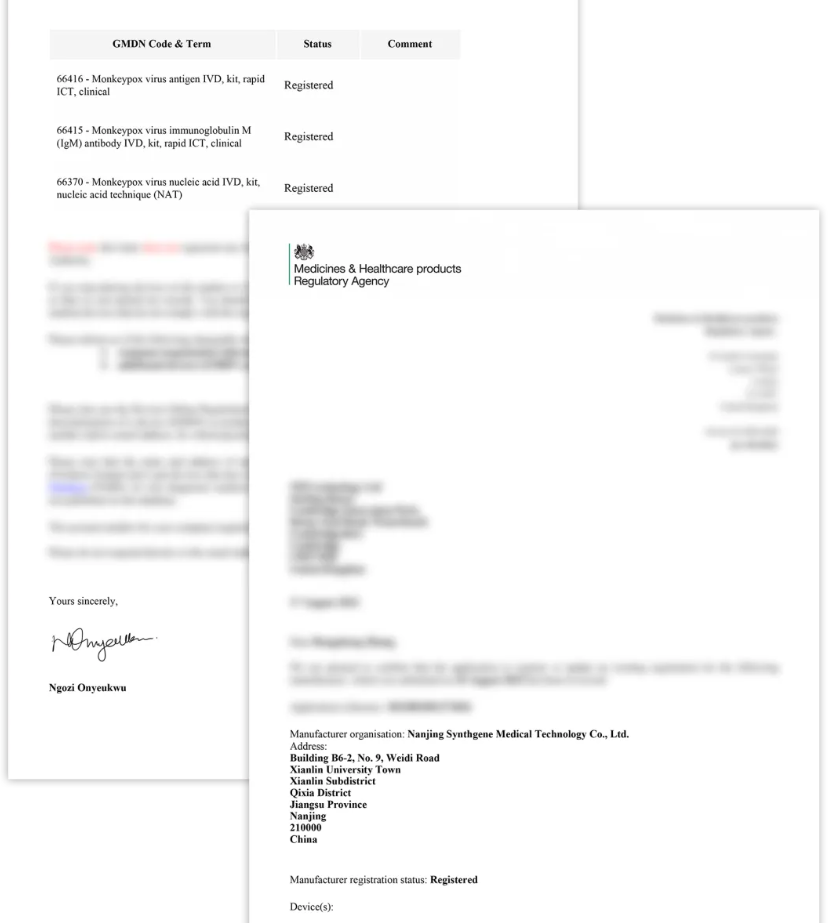
SYNTHGENE Pharmaceutical's Comprehensive Monkeypox Virus Testing Solution
- Monkeypox Antigen Test Kit:
Shenji's monkeypox virus team has developed both monkeypox antigen and antibody testing products. Using paired monkeypox antibodies, they have created a highly sensitive and specific antigen detection product. According to test results, the sensitivity of Shenji's monkeypox antigen detection product is within 100 pg/mL.

The monkeypox antigen product does not cross-react with smallpox, cowpox, or chickenpox. It is suitable for testing nasal swabs, throat swabs, and skin exudates.

- Monkeypox Antibody Test Kit:
Shenji's R&D team has developed high-sensitivity and high-specificity IgG and IgM detection products using monkeypox antigens.
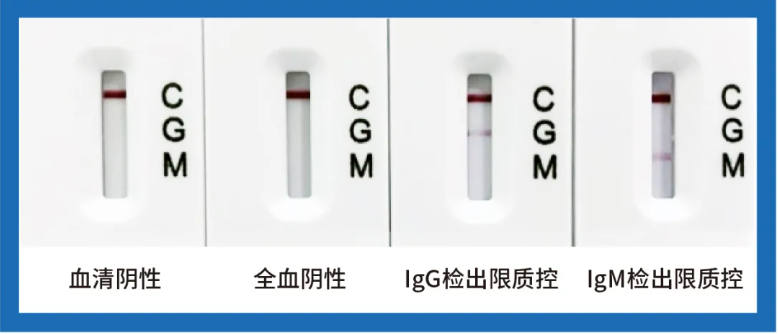
- Monkeypox Nucleic Acid Test Kit:
Shenji Pharmaceutical has introduced a monkeypox virus nucleic acid test kit (RT-PCR method) that has completed performance validation with excellent results. This product rapidly, sensitively, and specifically detects monkeypox virus nucleic acid by testing for viral nucleic acid fragments. It is suitable for the rapid detection of monkeypox virus infections and close contacts, and can be quickly deployed on existing COVID-19 nucleic acid testing platforms.
Monkeypox may not be as alarming as some might think, but it is still important to take it seriously. Preparedness for potential transmission risks through prevention, detection, and treatment is essential.
In response to the current monkeypox virus infection event in China, we will continue to monitor the needs for prevention and control, maintain testing capabilities, quantify response needs, and act swiftly when necessary.
https://en.syngenemed.com/products_detail/169.html
Related news
Related Products


